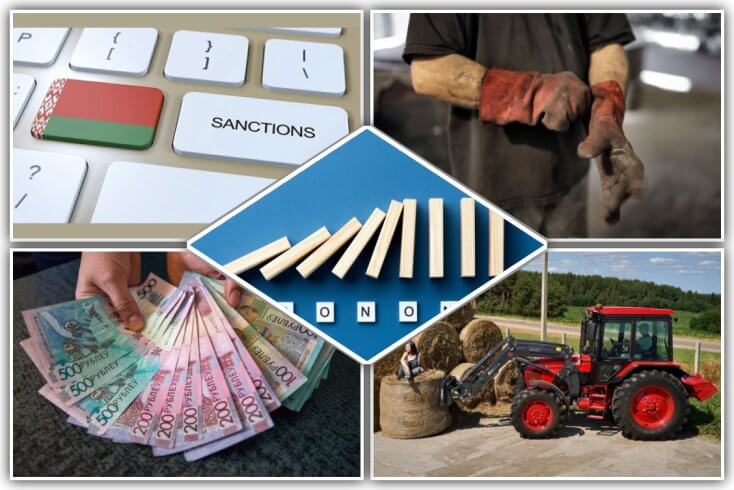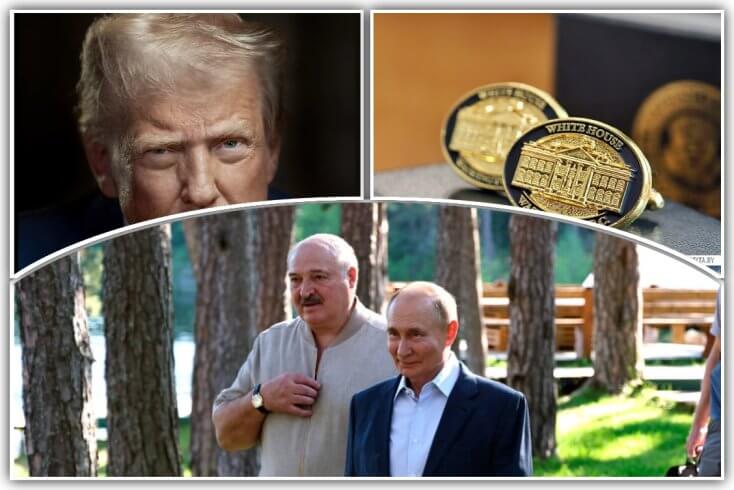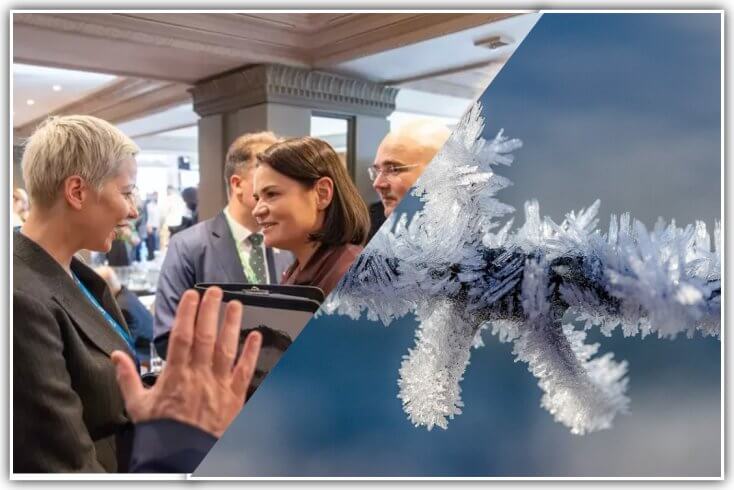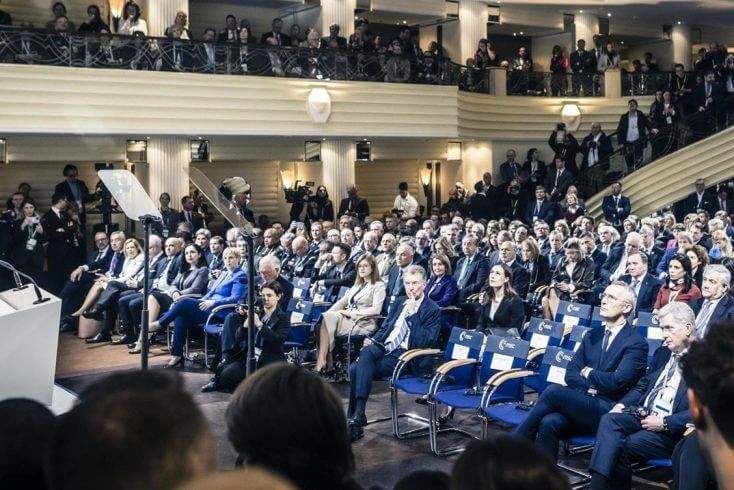The Belarusian leader has made an obvious effort to restrain officials and activists advocating Russian expansion. Moscow has enough tools to subdue Belarus, but will it do so?
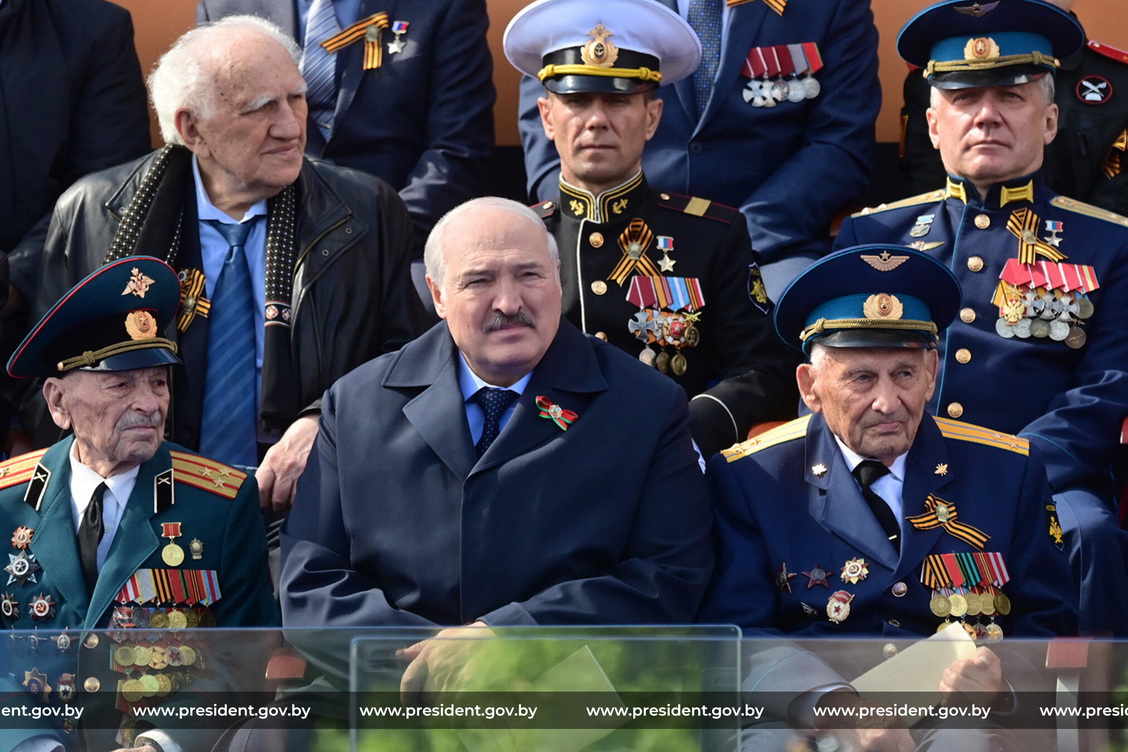
Having voted in the parliamentary and local elections on February 25, Alaksandar Łukašenka pushed back hard against any suggestion that he was seeking to cede Belarus’ sovereignty to Russia.
“If in Russia in particular, and also in Belarus, someone thinks that the Union State means that tomorrow we’ll unite, and power will be concentrated in the Kremlin and so on. . . .
“Look, I’m the ‘outgoing’ president, I often say this, but I’m absolutely convinced: whoever comes after me will not support this position.
“Two sovereign, independent states. We are smart and educated enough to create such a union of sovereign and independent states so that we can be stronger.”
He stressed that unification would not be supported “either in Russia or Belarus,” and “would only make things worse.”
Therefore, “it is necessary to solve the problems we face step by step, calmly, evolutionarily,” he said.
Nationalist MP has mandate extended
The parliamentary election was a tightly choreographed event. Still, observers wondered whether historian Ihar Marzaljuk, known for his pro-independence views, would be re-elected.
Servile and loyal to Łukašenka, Marzaljuk speaks fluent Belarusian. One month before the election, he criticized the theory of Eurasianism, stressing that “we are Europeans . . . the Russians, Ukrainians and Belarusians.”
For the Kremlin, this may not yet be “Russophobia,” but still a reason to raise eyebrows. It sees Europe as a hotbed of rotten liberal values, LGBT and sodomy. The pro-European talk coming from a little brother, almost a northwestern province, is outrageous from the viewpoint of Russian nationalists who see Belarus as part of Russia.
Some observers predicted that given Minsk’s current dependence on Moscow, Marzaljuk would lose his seat in the House of Representatives.
However, he was chosen over Dźmitryj Rahaŭcoŭ, a member of Biełaja Ruś and vice-rector of Mahilou State University.
Karpiankoŭ on defensive
In December, Mikałaj Karpiankoŭ, deputy interior minister and Internal Troops commander, promoted an improvised chevron, emphasizing his connection to Russia’s Wagner PMC.
The chevron featured a human skull within the contours of Belarus – a message that was difficult to understand.
Around the same time, the general took to the media to praise Wagner militants and discuss geopolitics. He boasted of organizing anti-riot military units across the country.
Rumor had it that he was campaigning to have himself promoted to interior minister. Some observers even suggested that the Kremlin might use him to unseat Łukašenka.
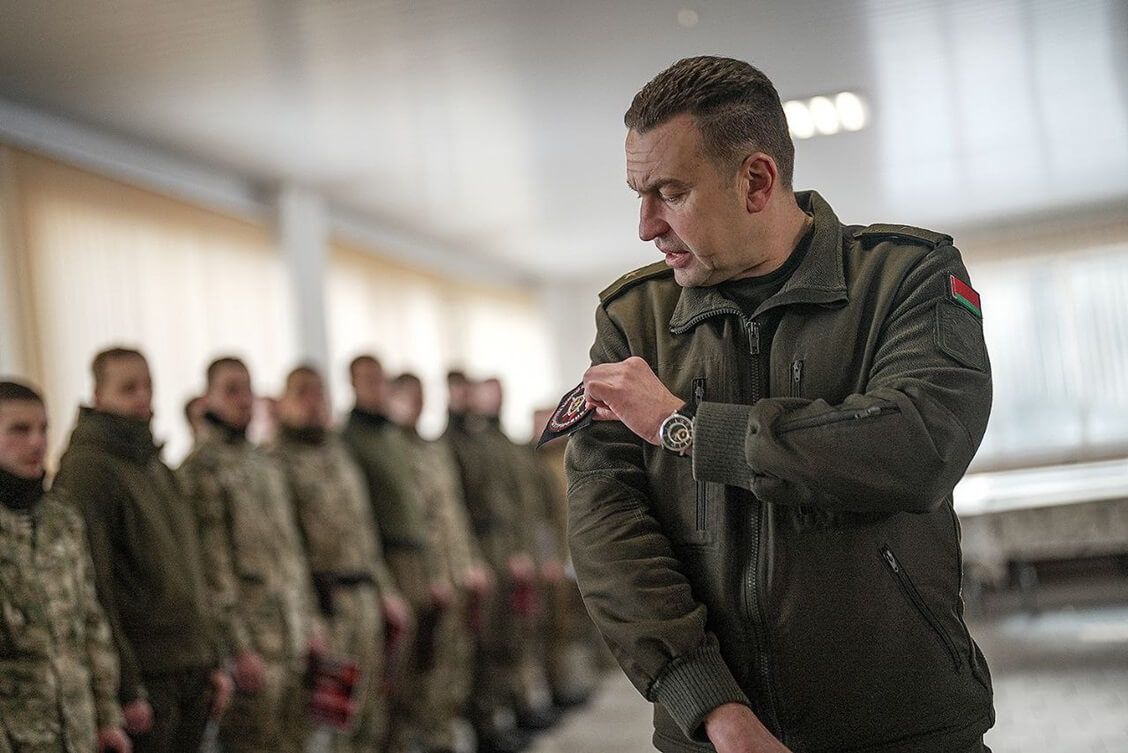
Karpiankoŭ, in a televised interview last month, dismissed the rumors that he was at odds with Interior Minister Ivan Kubrakoŭ, whom he described as “a very smart and far-sighted person.”
Karpiankoŭ is one of many overtly pro-Russian security officers who display Russian state and war symbols at their offices. He has trumpeted the Russian army as “invincible.”
On February 20, clearly referring to Karpiankoŭ, Łukašenka warned officials against excessively idealizing Wagner soldiers.
“I always [warn] both the minister and some others here who are on the [TV] screens with Wagner troops almost every day: ‘Ah, Wagner, ah, Wagner’. Good boys, thank you for sharing with us your war experience.
“As for the rest, our officers are just as good at everything else. They graduated from the same academies.”
Two pro-Russian activists fall out with authorities
The two outspoken advocates of Russian expansion – Volha Bondarava in Hrodna and Elvira Mirsalimava in Viciebsk – fell out of favor with authorities in February.
Bondarava, who ran on a ticked from the pro-government Communist Party of Belarus, was denied a seat on the Minsk City Council, while Mirsalimova was fined twice allegedly for unauthorized picketing online.
Moreover, the latter was tried for alleged “propaganda of Nazi symbols” on February 28, Vitebsk Ya Gulyayu reported. The sentence is unknown, but she might be doing time in jail now.
Both are known for campaigning vigorously for the unification of Belarus and Russia on the Telegram messenger application.
“Several Russian states will never be as strong and prosperous as one,” Bondarava said in one post. “Unification is not a whim, but a way to salvation,” she said in another.
Mirsalimava pointed to “the obvious absurdity and danger of separate living of Great Russians and White Russians in different states,” stressing that “these are ethnic subgroups of one people, separated by the 1991 catastrophe.”
The aftermath of that catastrophe “will have to be addressed sooner or later, but some people don’t really want it,” she argued.
Mirsalimava said after one trial that she would continue to work for the “real integration of Russia and Belarus.”
Łukašenka associates himself with sovereignty of Belarus
Łukašenka has long equated Belarus’ independence with his rule. He can sense a slightest threat to his personal sovereignty from a mile away.
Moscow and Minsk seem to have a conceptual difference in their understanding of their Union State.
For Łukašenka, it is a source of propaganda, inspiration, financial and economic benefits and protection from the West.
The Kremlin sees economic support of its ally as its consent to political dominance. But the Belarusian leader has other ideas. Russia has failed so far to increase its political influence on Minsk.
Łukašenka and Putin approved 28 integration programs at a meeting of the Supreme State Council of the Union State in November 2021.
More than two years later, the only real progress has been made in trade, logistics and economic indicators, with Minsk being the beneficiary.
However, the countries have failed so far to set up a supranational tax committee.
The Belarusian parliament approved a bill to that effect in December 2022. One month later, Łukašenka said that “this small body” would not deprive Belarus of its sovereignty.
However, Belarusian Finance Minister Juryj Sielaviorstaŭ complained of difficulties in harmonizing tax legislation. Nothing has happened since then in terms of supranational body establishment.
On November 29, Russian Prime Minister Mikhail Mishustin said that “practically everything is ready for the launch of the Supranational Tax Committee.”
He claimed that the integration programs were 90 percent complete, noting, “We need to define new benchmarks for 2024-26.”
Apparently, the remaining 10 percent of integration measures have been postponed.
On January 18, Łukašenka presented his vision of integration. Speaking of proposals to “almost create a single ministry or customs committee,” he said, “We flatly rejected it and agreed . . . to set up a joint group that will make recommendations.”
“This shows that we, Russia and Belarus, are sovereign and independent states. And we should proceed from this point when we make any decisions,” Łukašenka stressed.
Simply put, when it comes to ceding some powers to Moscow, integration stumbles as Minsk resists attempts to limit its independence.
Moscow has enough leverage
While bargaining for economic concessions Łukašenka clashed with the Kremlin more often than not.
In August 2018, he accused the Russians of “behaving barbarically towards us.”
“They are demanding something from us, as if we were their vassals, but within the EAEU [Eurasian Economic Union], where they invited us, they do not want to fulfill their obligations. That is why they have created a non-competitive situation.”
In November 2019, he went even further, accusing Moscow of violating Belarusian sovereignty. “Why the hell do we need such a union?” he questioned.
When relations with Moscow were strained, Łukašenka persecuted supporters of the “Russian world.”
Minsk arrested three journalists of Russia’s Regnum during a dispute with Moscow over oil and gas prices. After spending more than a year in pre-trial detention, the three were given suspended sentences and released in 2018.
Łukašenka’s current rhetoric and actions do not suggest any cooling with Moscow.
In the past, the Belarusian ruler always reached out to the West to force concessions out of the Kremlin.
After crushing the 2020 postelection protests and allowing Russian troops to attack Ukraine from Belarus in 2022, he has little room for maneuver. Russia has enough leverage to make life unbearable for its ally and force it to be much more accommodating.
